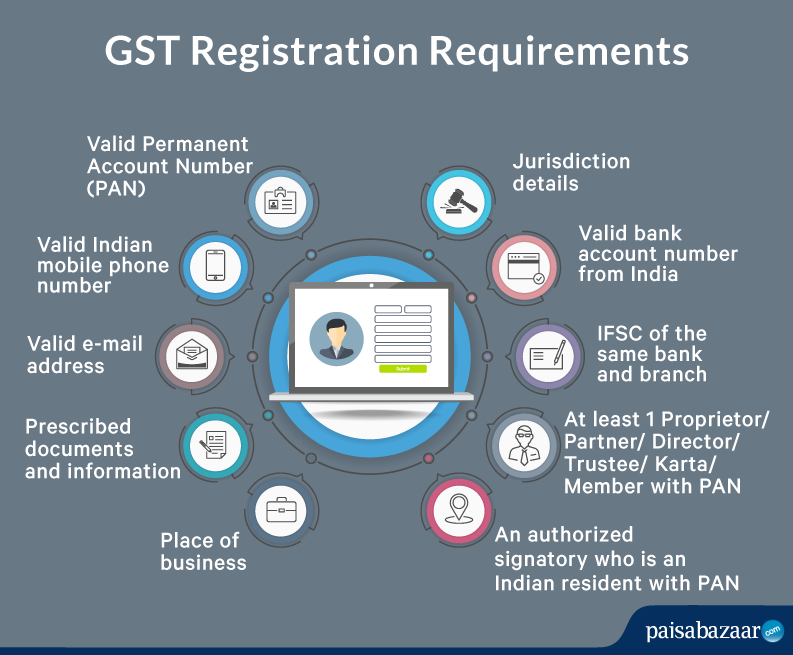Understanding the Perks of Singapore GST Registration for SMEs
The Ultimate Guide to Streamlining the GST Registration Refine and Needs for Small Company Owners

Understanding GST Fundamentals
To comprehend the principles of the Goods and Services Tax Obligation (GST) system, small company proprietors need to initially comprehend its underlying concepts and implications. GST is a value-added tax levied on most items and solutions for domestic intake. It intends to enhance the taxes process by replacing numerous indirect tax obligations enforced by the state and central federal governments. Under the GST regime, businesses are needed to register and accumulate tax on behalf of the federal government, making certain openness and conformity.
Among the crucial concepts of GST is input tax obligation credit history, which enables organizations to declare credit rating for tax obligations paid on their acquisitions. This system avoids the plunging impact of taxes and promotes performance in the tax system. Additionally, GST is a destination-based tax, indicating that the tax obligation is levied at the factor of usage instead of the point of beginning. This makes sure fair circulation of tax obligation profits among states based upon where the goods or services are eaten. Comprehending these basic concepts is important for local business proprietors to navigate the complexities of the GST system and make sure conformity with the law.
Qualification Standards for Enrollment
Having actually developed a foundational understanding of GST principles, little service owners must currently fulfill certain qualification requirements to wage the registration process. In India, entities engaged in the supply of items or solutions with a yearly aggregate turnover exceeding Rs. 40 lakhs (Rs. 10 lakhs for unique group states) are needed to register for GST. Additionally, certain businesses such as those associated with inter-state supply of items, laid-back taxable persons, and those required to pay tax obligation under the reverse cost system should register for GST regardless of their turn over. Services that were registered under the weblink previous tax routine (VAT, service tax, and so on) are likewise mandated to register under GST. Nonetheless, agricultural companies that only provide create out of key manufacturing are exempt from GST enrollment. It is essential for local business owner to thoroughly analyze their eligibility based upon these criteria to ensure conformity with the law and prevent any charges for non-compliance.
Files Needed for GST Registration

Simplified Enrollment Refine Actions
Following the collection and verification of the requisite files, the enrollment procedure for GST can be browsed with a series of streamlined steps created to assist in effective conformity for small company owners. The primary step includes seeing the GST portal and picking the 'New Enrollment' option. Consequently, the applicant needs to fill out Component A of the GST REG-01 type with details such as frying pan, mobile number, and email address to get an OTP for confirmation. Once the OTP is obtained and entered, a Short-term Referral Number (TRN) is created for more process. The next action needs filling out Component B of the form with necessary service details, posting sustaining files, and finishing the verification process using DSC or EVC. Upon successful confirmation, an Application Referral Number (ARN) is issued, showing the conclusion of the GST enrollment procedure. By adhering to these simplified actions, view website tiny organization owners can successfully register for GST and guarantee conformity with tax obligation laws.
Tips for Ensuring Conformity
To keep regulative adherence and operational honesty, attentive oversight and aggressive steps are critical in making certain conformity with GST requirements for small service owners. Tiny organization owners must remain updated with GST policies, submitting due dates, and any kind of adjustments in tax rates to avoid penalties and keep an excellent standing with tax obligation authorities. Going to GST understanding workshops or training programs can improve understanding and compliance with GST regulations, ultimately profiting the service in the long run.
Conclusion
To conclude, local business proprietors need to comprehend the basics of GST, fulfill the qualification requirements, collect needed files, and follow the streamlined enrollment process actions to make sure compliance. go to website By streamlining the GST enrollment process and needs, small company owners can stay clear of charges and operate their organizations efficiently within the legal structure - Singapore GST Registration. It is vital for small company proprietors to stay compliant and enlightened with GST guidelines to maintain a successful organization operation
Small service owners looking for GST enrollment should ensure they collect and submit the necessary records to complete the registration process efficiently. The records required for GST enrollment normally include evidence of business enrollment or incorporation, FRYING PAN (Permanent Account Number) card of the organization entity, identity and address evidence of the promoters/partners/directors, photos, address evidence of the place of service, financial institution account statements or terminated cheques, and authorization types. Attending GST recognition workshops or training programs can improve understanding and conformity with GST policies, inevitably benefiting the organization in the lengthy run.
By streamlining the GST enrollment process and demands, little organization owners can avoid charges and run their companies smoothly within the legal structure. It is critical for small company proprietors to remain compliant and informed with GST policies to preserve an effective business operation.